
1 minute read
Answering the Call
Whether artist, scientist, religion major or physician, members of the Transy community (240 years-old and counting) continue to answer the call to something greater than themselves. We offer just a sampling of how the creative and humane dimensions of a liberal arts mind and heart are always ready to meet the moment.
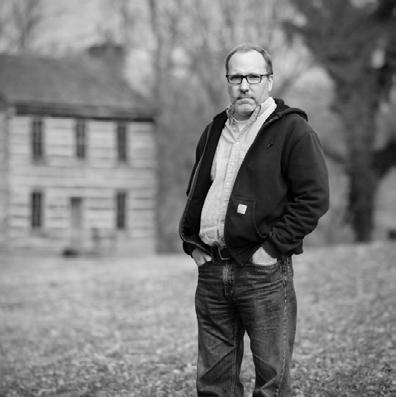
Maurice Manning
Advertisement
To a Barn With Nothing In It
During the early days of the COVID-19 quarantine, Maurice Manning, English professor and writer-inresidence, shared this poem and four others as part of “A New Decameron,” an online project inspired by a 14th-century poet’s response to the plague, and a way of connecting us to our humanity. (You can read more and find the link to hear Manning read these poems on our 1780 blog.)
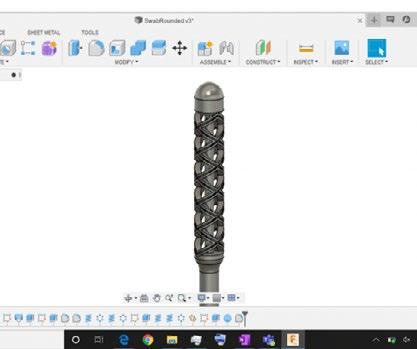
Dr. Gerald “Jerry” Grant ’81 worked with an interdisciplinary team at the University of Louisville to create a way to manufacture COVID-19 testing swabs using 3D printing, helping to address the commonwealth’s dire shortage.
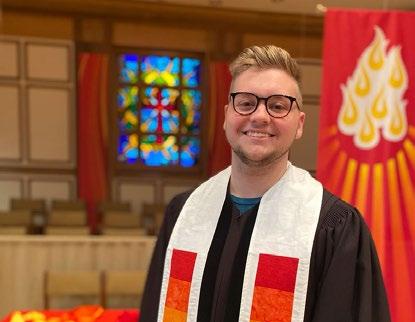
As a manager at a Lexington grocery store serving on the front line during COVID-19, religion major Jackson Campbell ’22 has taken on enormous responsibilities with remarkable grace. “Transy has helped me tremendously,” he says of the work to meet the essential needs of the community. He draws a direct connection between his interactions on campus and in the classroom and his ability at work to put himself in other people’s shoes, understanding the varied perspectives and cultures of customers and employees who are coping with the stress of an uncharted reality. “Transy encourages and teaches a preparedness for difference or diversity,” he says, “or danger” as circumstances demand.
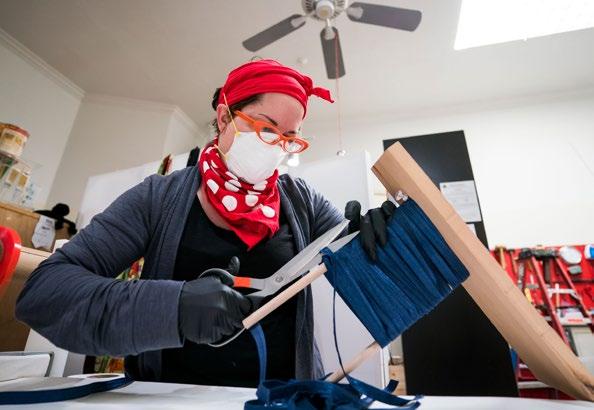
Former costume artist Jeanne Henzel Swartz ’95 makes face shields for health care workers at her artisan curtain and upholstery business in California.
Photo by Maurice Ramirez
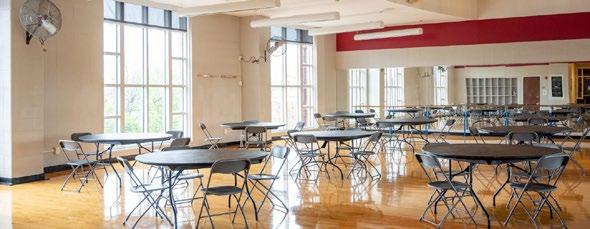
With spring sports canceled and students taking courses remotely, the empty gyms and locker rooms at the Clive M. Beck Center filled a critical need in the community: temporary shelter for clients of Lexington’s Hope Center. The Beck Center’s practice gym served as a shelter for 40-50 individuals who regularly stay at the Hope Center — the additional space allowed the nonprofit’s staff to meet physical distancing recommendations from local, state and federal health officials.

Forbes magazine featured the university’s food service provider, Bon Appétit Management Company, as it partnered with Transy to offer meals to the Hope Center clients.
Tyler Dobbs ’22, soccer midfielder

As medical supplies ran short in Lexington, science faculty Joshua Adkins and James Wagner received permission to donate lab gloves and sterile swabs no longer needed because of the shift to remote learning.

